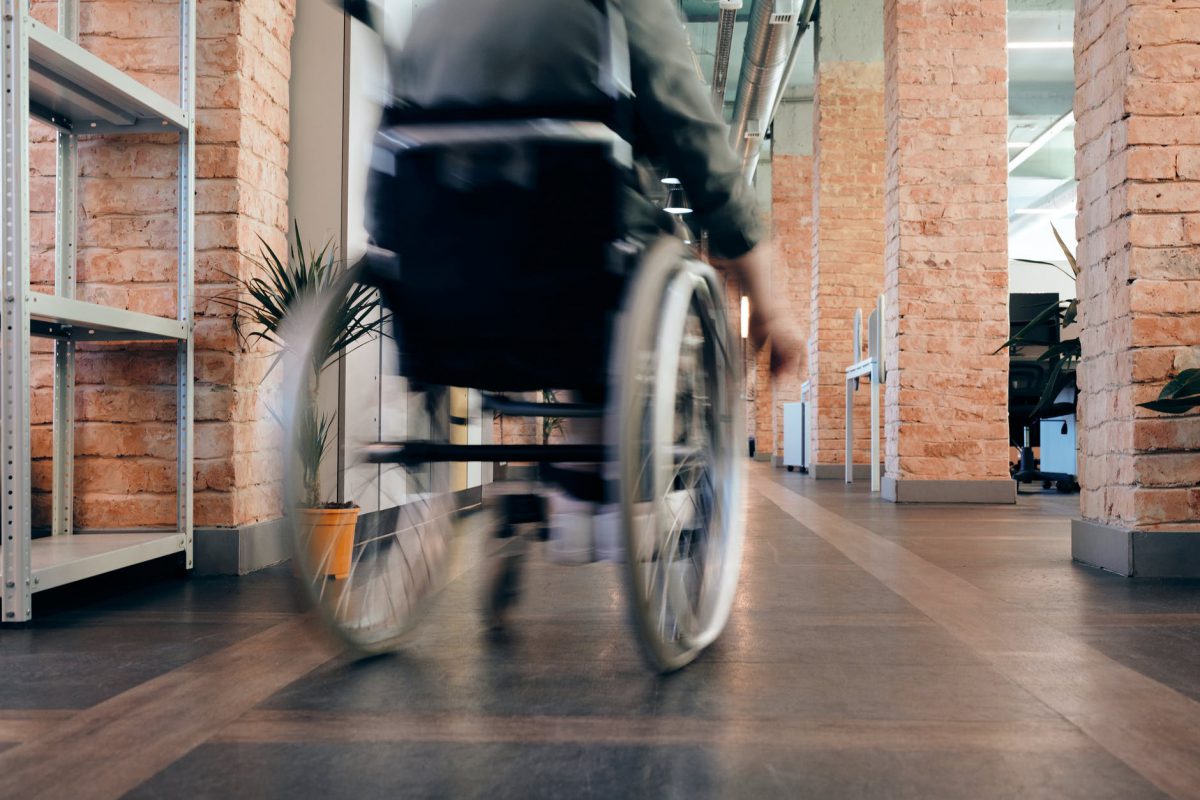According to the CDC, 61 million U.S. adults live with a disability; that’s more than a quarter of the population (26%). The word ‘disability’ spans a wide range of physical and mental challenges across mobility, cognition, mental health, hearing, vision, and more. Some disabilities are readily visible upon meeting a person, but many are not. As businesses struggle to reopen responsibly amid the ongoing pandemic, it’s more important than ever to ensure that your employees with disabilities are supported. Read on for some tips to understand and equip your people with any disability accommodations they may need to remain safe from infection.
Many disabilities increase the risk of severe COVID-19 symptoms
For a variety of reasons, your employees with disabilities may be at increased risk of harm from COVID-19. In terms of physical health, adults with disabilities are three times more likely to have heart disease, stroke, diabetes, or cancer than adults without disabilities. A study released in June found that patients with these and other underlying conditions who contracted the coronavirus were six times more likely to be hospitalized and twelve times more likely to die from it than peers without these compounding issues. Accordingly, while every employee should be maximally protected from COVID-19, employers should take extra care to prevent exposure risks among their employees with disabilities, in order to minimize the potential for dire outcomes.
Similarly, mental health disorders can be deeply exacerbated by the conditions the pandemic has created. Many people without a clinically diagnosable mental health condition are experiencing crippling levels of anxiety and depression from social isolation, financial hardship, and the loss of loved ones from this virus. Simply reading the news on a daily basis is enough to destabilize a person’s mental health.
As we wrote about here, mental illnesses and disorders can deal a crushing blow to metrics like productivity and engagement in the workplace. In fact, depression and anxiety conditions alone are estimated to cost the world economy $1 trillion per year. People with cognitive disabilities are also at increased risk of mental health problems, making it even more imperative that they have resources at their disposal to support themselves during these challenging times, as well as disability accommodations to keep them safe and healthy.
Steps to keep employees with disabilities safe from infection
The first step to protecting employees, whether or not they have a disability, is of course to follow all evidence-based recommendations to prevent the spread of the coronavirus. Facilitate social distancing, require mask wearing, limit use of common spaces and appliances, and sanitize, sanitize, sanitize. Make all signage clear and accessible, using high-contrast, large font and placing it at heights that are visible to those in wheelchairs. Ask employees for suggestions of how to make the workplace even safer, and implement those ideas where possible. Communicate your policies early and often, and require strict adherence in order to prevent situations where employees may feel at risk of exposure or peer-pressured to violate rules.
Another important step is to offer opportunities for employees to request individual accommodations to your policies. Being mindful of privacy guidelines, ask which employees have special circumstances, from having a disability themselves, to having someone in their household who is disabled, to ensure they have an open invitation to voice their needs. Seek to truly listen and understand their situation, so you can be positioned to best help them. Objectively assess their level of risk, whether or not their job is essential and if it can be done with limited in-office time, as well as what disability accommodations you can reasonably grant. Lastly, ensure that whatever decision you ultimately make is in compliance with all regulations, particularly those around EEOC and ADA.
Communicate the outcome of any deliberations clearly and compassionately to your employees. In instances where you were unable to grant accommodation requests, explaining why will go a long way towards ensuring that individual does not feel slighted or unduly denied. As circumstances evolve, encourage an open-door policy around accommodation requests and continue to remain aware of employees’ situations and health in order to provide the best employee experience possible despite the less than ideal circumstances.
Supporting employees with varied and changing needs during the global pandemic isn’t easy. Make it easier by talking to your employees and being transparent with your processes. Consider starting a disability employee resource group to help your team members who may be struggling, including those who may be new to disability as a result of COVID-19 complications. If you could use a tool to assist you in standing up an ERG, providing additional employee support, and streamlining your communications around pandemic safety, check out Workrowd. We can help you help your employees, and measure the results through automated surveys and reports.


